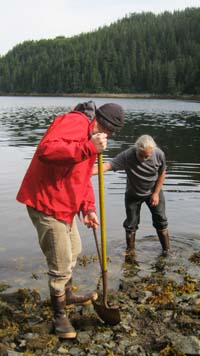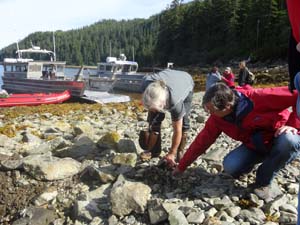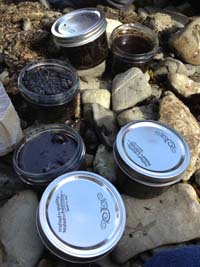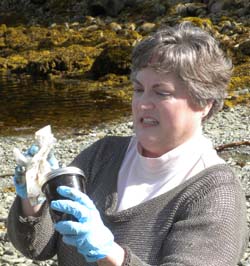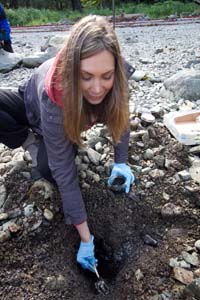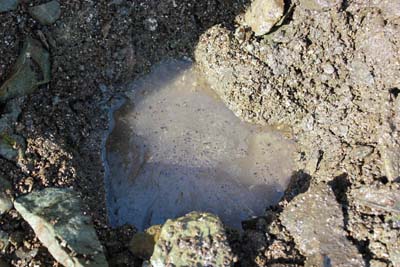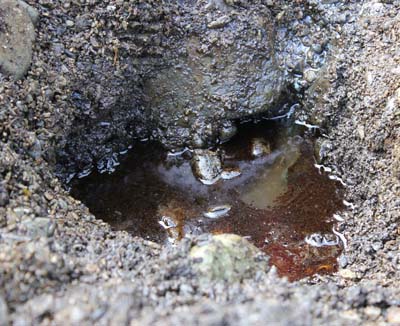
Lisa Matlock joined the council’s staff on August 12. Matlock brings almost twenty years of experience in coastal Alaska education and outreach to the position.
Originally from southwestern Colorado, she is a “green brat,” a term for kids whose parents work for natural resource agencies, so she bounced around beautiful places in the west during her childhood. Her family moved to Alaska to 1974. They returned to the lower 48 in 1976, but Matlock never got over her time in Alaska.
Always torn between a love for science and a love for communications, she majored in English and minored in Biology at the University of Chicago. She returned to Alaska for graduate school at the University of Alaska Anchorage, specializing in nature writing and science communications. This background led to her nearly two decades of work for natural resource agencies in the state.
After working for several years as a seasonal park ranger in Anchorage, Skagway, and Gustavus, Matlock’s first permanent job was in Seward at Kenai Fjords National Park in 2000. She worked as the park’s education specialist on tour boats in the fjords and at Exit Glacier. She was part of the Ocean Alaska Science and Learning Center, a research and education partnership between the National Park Service and the Alaska SeaLife Center, from its inception.
Matlock was the education specialist for Sitka National Historical Park from 2003-2007. There she interpreted the rich and emotional connections between land and water, people and places. The park’s 100 acres in Sitka includes totem poles in the rainforest and the Russian Bishop’s House. For parts of each summer, Matlock worked on the M/V Spirit of Endeavor as an onboard naturalist for Cruise West. She interpreted the phenomenal marine environment and special communities along the Inside Passage from Ketchikan to Juneau during 8-day cruises.
From 2007-2012, Matlock traveled a huge swath of Alaska’s coast, doing education and community outreach for the Alaska Maritime National Wildlife Refuge. Matlock worked in communities both large and small doing wildlife education, including oil spill-related subjects, during this time. Most recently, Matlock worked as an outreach specialist for the U.S. Fish and Wildlife Service in Anchorage. For the past year she did a variety of communication projects for the relatively new Landscape Conservation Cooperative partnerships.
Matlock is very excited to be working for the council and looks forward to meeting those who live in communities new to her. She also is excited about reconnecting with those she has worked with in the past in a new capacity. Look for her visiting the region’s communities this fall and winter.
